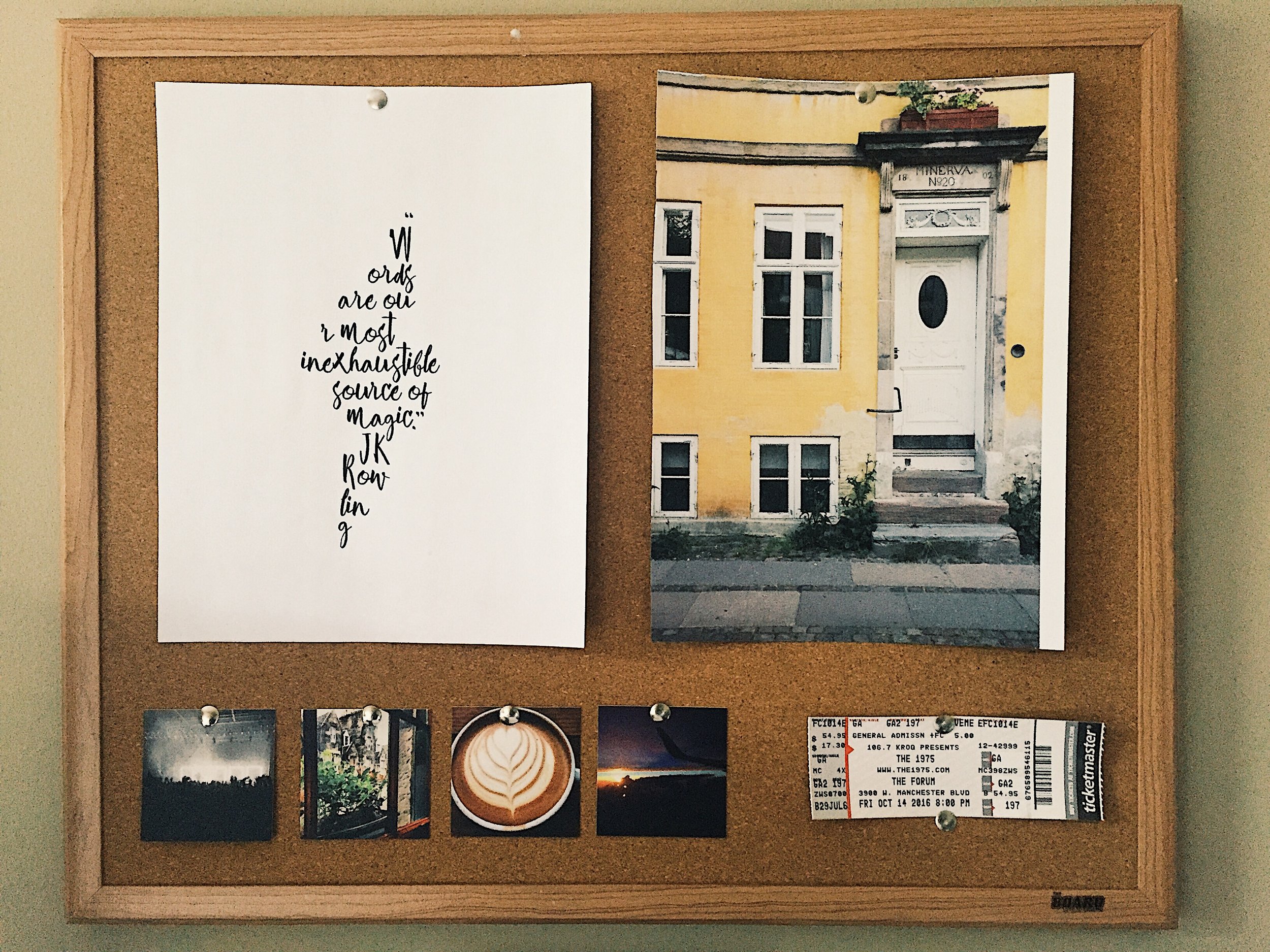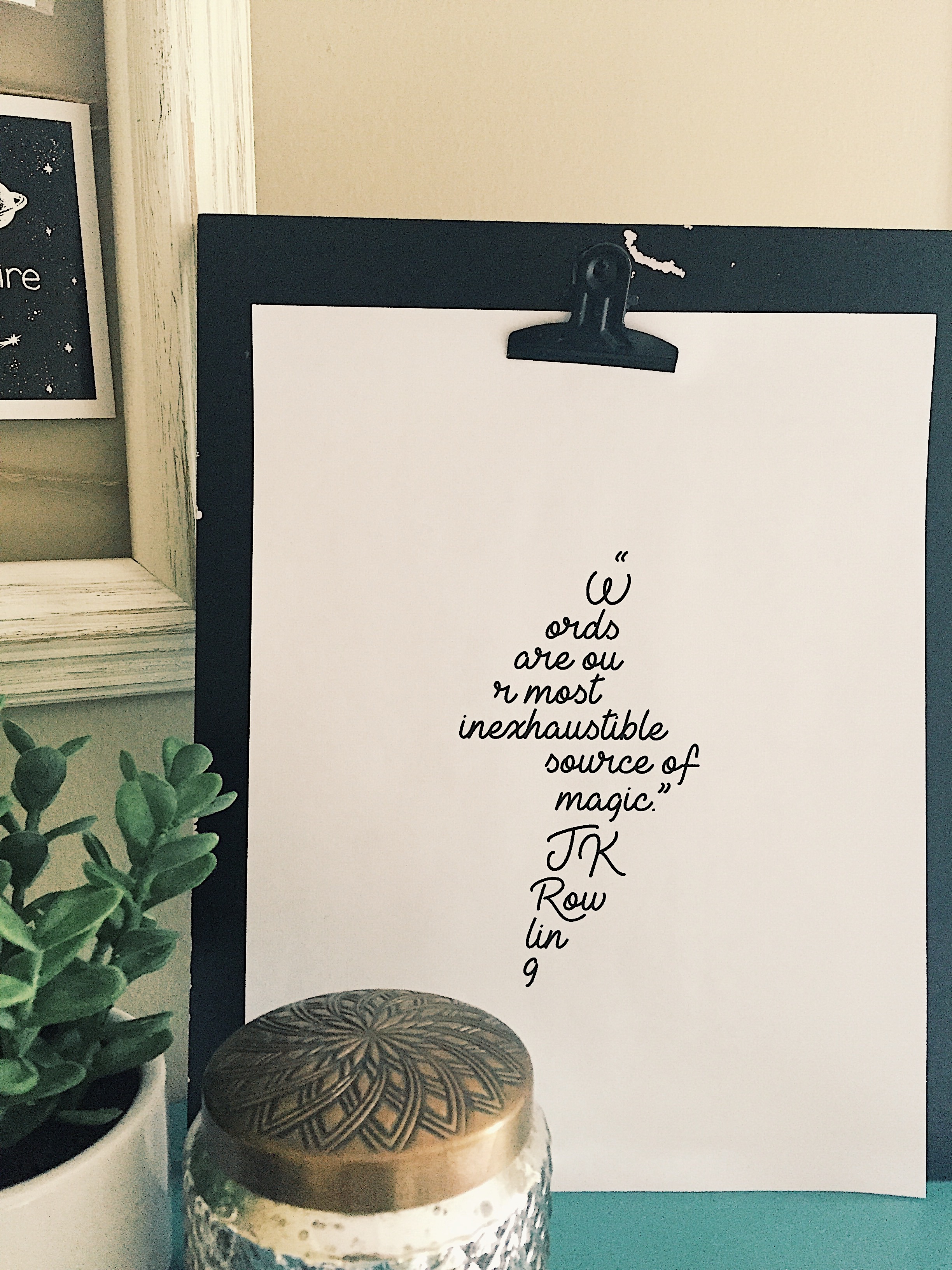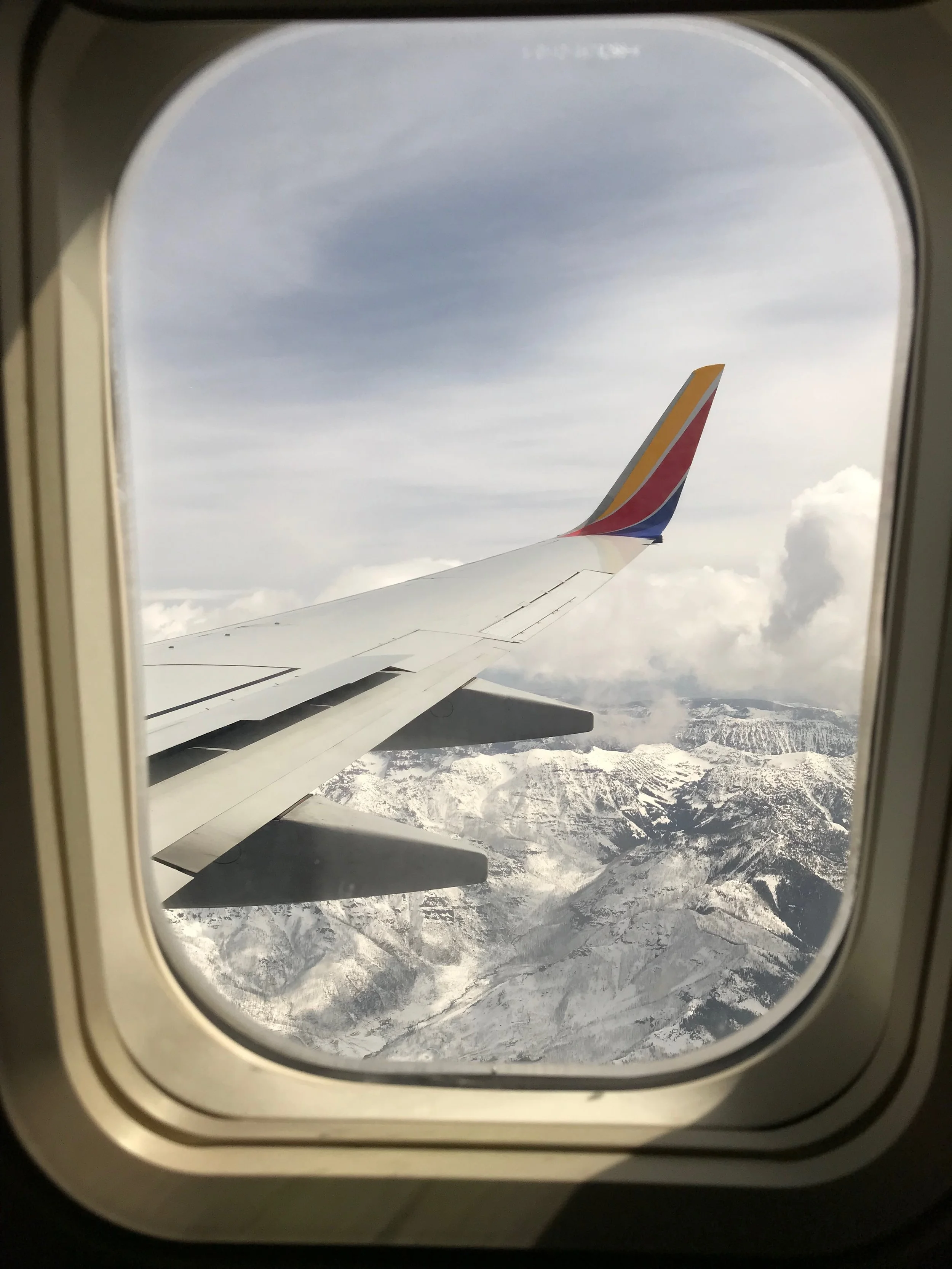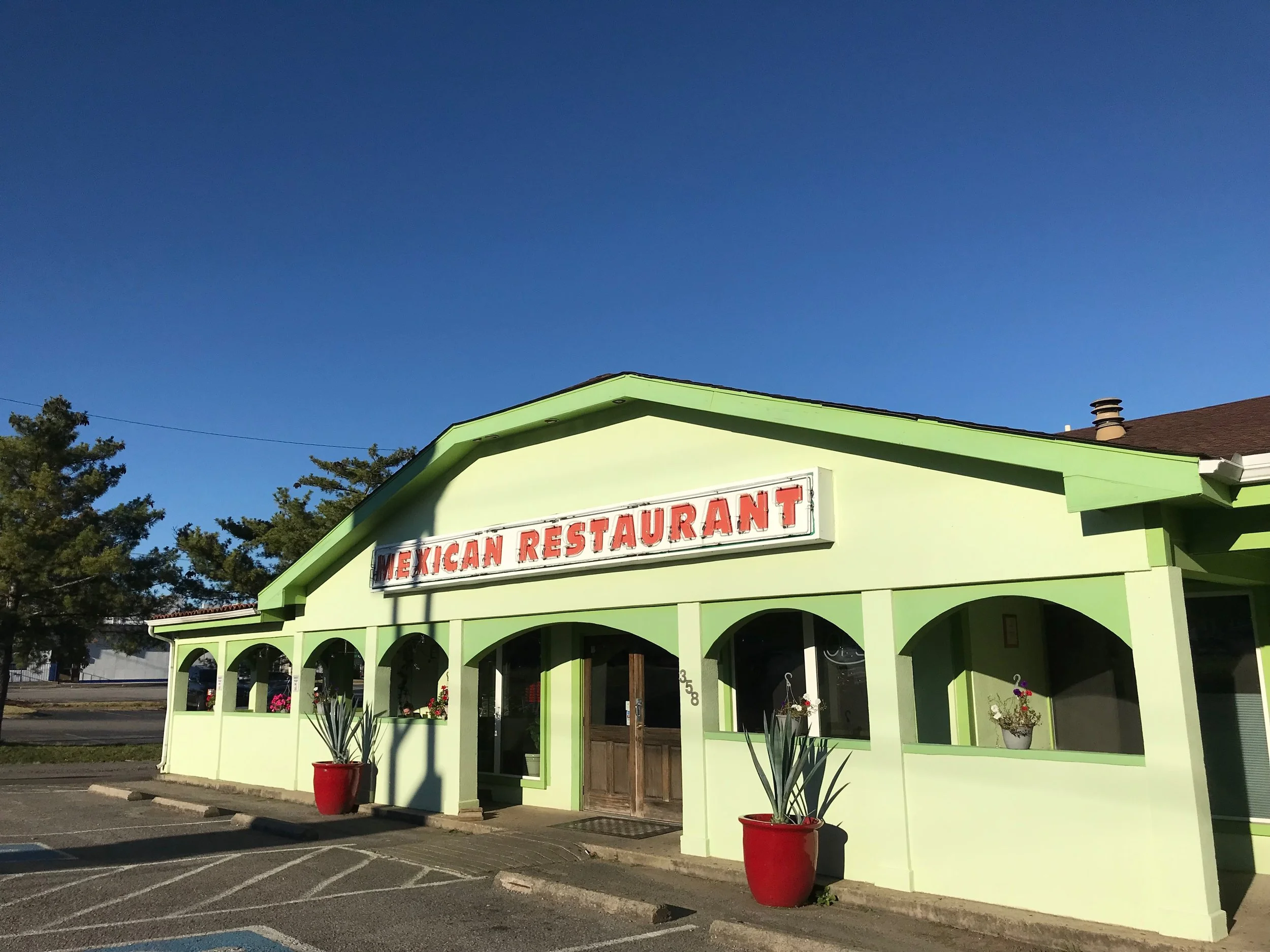FROM THE ARCHIVES: On Making Decisions When You Are Afraid LITERALLY Always
We've published hundreds of stories from 100+ writers in the last three years, so we're highlighting some of these timeless posts in our new From the Archives series. Enjoy!
Like a dramatic and silent slow action shot in a cheesy multi-million dollar film, I watched in horror as the barista raised the whipped cream dispenser, taking aim at my beloved mocha. But I didn’t want whip. In fact, when ordering, I had specifically requested no whip, please. An internal battle raged within me on whether or not I should say something. Over whipped cream. I was literally contested over whether I should say something about whipped cream.
Because why rock the boat? Even if it’s as inoffensive as asking for no whip.
“Don’t say anything,” Fear instructed. Over whipped cream.
I did speak up. I told him no whip. “Good, because it was gonna cover up my awesome artwork.” Oh.
I fear more than just speaking up in a coffee shop. I fear doing anything that may be slightly risky to my physical health, like white water rafting (trying to buy concert tickets when they go on sale is enough adrenaline for me, thank you very much). I fear disappointing the people around me – friends, family, co-workers, and anyone who has crossed my path ever, really (getting honked at is a truly sad occasion for me). I fear making decisions of any sort because WHAT IF I MAKE THE WRONG ONE?! (Cue the panic attack.)
Fear—capital “F” Fear—is something that has always been my keeper. And I’ve developed a sort of Stockholm Syndrome with it; maybe I haven’t always enjoyed being held captive by Fear, but I’ve certainly felt safer under its guidance, as paradoxical as that sounds.
Fear’s control has been a subtle one, set in rules and instructions, and following rules has always been my specialty. In elementary school, our teacher passed out a piece of paper with a list of 10 or so directions that she then gave us a set amount of time to complete. Number 1 said to read all of the instructions before beginning. Number 2 was something along the lines of writing your name at the top of the paper. The rest of the numbers continued similarly: draw a circle, do this, do that. However, the final number said this: Complete only numbers 1 and 2. With the smug pride of a do-gooder 8-year-old, I did as instructed, writing my name and drawing that circle, before putting my pen down and watching as my peasant fellow classmates feverishly tried to finish all the instructions.
I’ve wrapped myself in rules like a warm blanket, sipping Fear of breaking said rules like it’s a warm cup of hazelnut coffee. Give me a list of how-tos to accomplish something and I will accept it with the same sort of glee as someone who has just gifted me tickets to see The 1975 at the O2 in London. Rules are my safety, directions as comfortable to me as sitting in front of a fire on a dark winter’s evening.
But then I graduated, and the rules and directions and timelines imposed on me by the education system I had safely lived in like Sandy’s underwater oxygenated dome dissipated, and I was left floundering with decisions I had to make and GOD FORBID I have to make DECISIONS on my own.
And that’s when Fear stepped up and put one of its bony Inferi-like hands on mine and said, “Let me handle this,” and I stepped back and let Fear take to the helm once more because that’s what I’m used to, after all. And Fear created these new rules and expectations for me now that I was out of school: To be successful, you must have this sort of career. To feel fulfilled, you must have reached these milestones by this set timeline. To be this sort of person, you must do these sorts of things. And if I were to do anything outside of these new rules Fear set in place? Too many what-ifs, Fear reminded me. Too many risks. Stay here with me. You’re safe here.
And so that’s what I’ve been doing for the past year, sticking to these Fear-led guidelines for myself. And having a life and faith crisis in the process of it.
I went to London. In fact, I’m writing this on the plane back to the States, eating a cup of vanilla ice cream they just passed out. I began a draft of this alone one night in my hotel room, Fear making light-hearted conversation with me as I tried to fall asleep, saying things like, “Do you think those chest pains are a heart attack? What would happen if you had a heart attack by yourself? Would they find you before or after you died?” Fear is an excellent conversationalist, and night is when Fear is at its chattiest, I’ve noticed.
While in London, I purchased a book, Syrian Dust by Francesca Borri, at my most favorite bookstore, Daunt Books on Marylebone High Street. The book is—you guessed it—about the Syrian war, told from the perspective of an Italian freelance journalist who spent two years in the crumbling city of Aleppo, watching as thousands of innocent people died in the most horrible of ways, living each day in fear of being bombed by the regime or being shot by a sniper. (Please do your fortunate free-from-war mind a favor and take time to read this book to gain a small understanding of what others are going through; it’s one of those books that should be required reading for the entire world population.)
In the book, Francesca reflects on being caught in the midst of mortars raining down:
“Because if I had ever understood anything about this war, I would not have been afraid to love, afraid to take a chance in life, if only I had really understood anything about Syria, about this life that might end this second, instead of huddling against the wall a thousand times in my dark dank corner while everything around me exploded, instead of cowering there hopelessly regretting everything I had never had the courage to say, now that it was too late, too late for everything, and how could I have lost what was most beautiful to me? Because this is the only thing left to say about a war, the only piece that I really should have written … You who are able to, you who are alive tomorrow, what are you waiting for? Why don’t you love enough? The only thing to write, from amid my rubble, if only I had understood anything: You who have everything, why are you so afraid?”
Why do I allow Fear to captain when all it wants to do is keep me tethered to the dock? Making decisions under the directions of Fear may seem less riskier at the outset, yes. But living a life safe from risk is a guaranteed way to live no life at all.
You may take the job and you may learn it’s not for you, but that’s okay. You can find another job. You may move to the new city and you may discover it isn’t home, but that’s okay. You can move somewhere else. The decisions that feel so heavy to us in our newly post-grad lives—What should I do with my career? Where should I live? Should I go back to school? What now?—are all decisions that, though important, are permeable. Life changes, and so do we.
Making decisions—especially big ones that carry no map—bring with it a certain level of anxiety, of course. But allowing Fear to be the final authority is choosing to remain a prisoner within the ship’s galleys rather than charting your own life’s course.
So, you who have tomorrow, you who have everything, why are you so afraid?
FREE PRINT
Do you like free things? Us too. How about this free print of a dope J.K. Rowling quote in 3 font options? Yes, please.















Hi friends,
Announcement (sounds so formal, doesn’t it?):
It's the end of an era.
I’ve decided that, after nearly 8 years of telling stories of navigating life, this season of Windrose is drawing to a close.